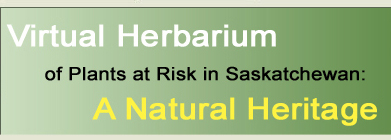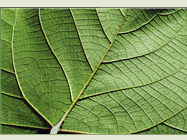
|

|

|

|

|

|

|
|
|
|
|
|
| Thalictrum occidentale var. occidentale Gray | Species Image Gallery (opens in a new window) |
||||||||||||||||||||
| TAXONOMY | |||||||||||||||||||||
| Family: | Ranunculaceae | ||||||||||||||||||||
| Genus: | Thalictrum | ||||||||||||||||||||
| Species Synonyms: | none | ||||||||||||||||||||
| Common Names: | western meadowrue | ||||||||||||||||||||
| DISTRIBUTION | |||||||||||||||||||||
| Canada: | southern Yukon – southwestern Mackenzie District, British Columbia – Alberta – southwestern Saskatchewan | ||||||||||||||||||||
| Saskatchewan: | southwestern Saskatchewan; Cypress Hills – Coriander | ||||||||||||||||||||
| Ecoregion: | Cypress Upland, Mixed Grassland | ||||||||||||||||||||
| HABITAT | |||||||||||||||||||||
| Saskatchewan: | in aspen or pine woods | ||||||||||||||||||||
| RARITY STATUS | |||||||||||||||||||||
| Provincial
Status According to Harms (2003): |
Threatened |
||||||||||||||||||||
| Nature Conservancy Status: | G5 S1S2 |
||||||||||||||||||||
| Saskatchewan
Species at Risk Status: |
None |
||||||||||||||||||||
| COSEWIC Status: | None |
||||||||||||||||||||
| Western meadowrue is threatened because of rarity in Saskatchewan. It is regionally restricted to the southwestern portion of the province. Some local populations are small and some larger. Possible threats have been identified for this species. | |||||||||||||||||||||
| SPECIES DESCRIPTION | |||||||||||||||||||||
| Height: | 30 – 100 cm | ||||||||||||||||||||
| Roots: | fibrous, thin, yellow to dark brown or black; rhizomes often present | ||||||||||||||||||||
| Stems: | erect, hairless | ||||||||||||||||||||
| Leaves: | mostly on the stem, blades 3 – 4-ternately compound | ||||||||||||||||||||
| Leaflets: | 10 – 30 mm wide, round to egg-shaped or heart-shaped, tip 3-lobed, not distinctly veined, hairless to glandular, lobed margins coarsely round-toothed | ||||||||||||||||||||
| Inflorescence: | branched, branches all about the same length, terminal, occasionally with some flowers in axils of leaves, open, many-flowered | ||||||||||||||||||||
| Flowers: | unisexual; sepals 3.5 – 4.4 mm in staminate flowers, 1.5 – 2 mm in pistillate flowers, oval, whitish, greenish or purplish tinged; petals absent; stamens numerous, filaments 4 – 10 mm, purplish; stigmas often purplish | ||||||||||||||||||||
| Fruits: | one-seeded, 6 – 9, spreading or reflexed, short-stalked, tapering at both ends, glandular, strongly 3-veined | ||||||||||||||||||||
| |||||||||||||||||||||